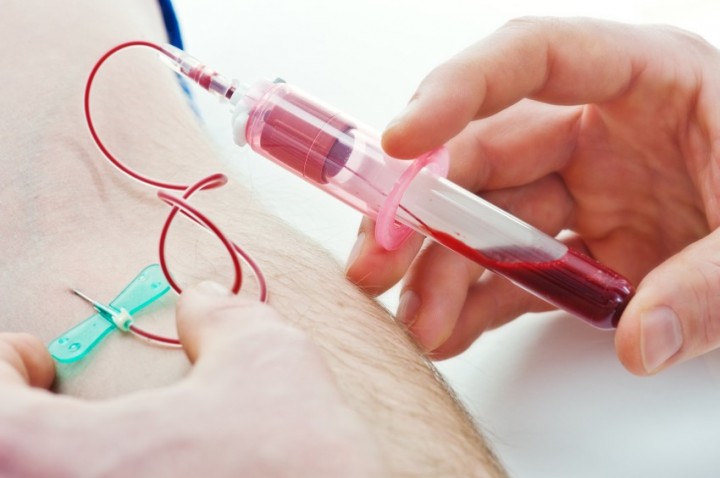
Essential Phlebotomy Course for Nurses: Boost Your Skills and Advance Your Healthcare Career
In today’s fast-paced healthcare habitat, continuous professional growth is key to providing top-tier patient care. For nurses aiming to expand their clinical expertise, enrolling in an essential phlebotomy course for nurses offers a valuable prospect. Not only does this training elevate your skill set, but it also opens doors to new career avenues and enhances your overall proficiency in patient management. In this extensive guide, we explore why taking a phlebotomy course is a wise investment, the benefits it offers, practical tips for successful training, and how it can help you advance your healthcare career.
What Is a Phlebotomy Course for Nurses?
A phlebotomy course for nurses is specialized training designed to equip registered nurses with the necessary skills and knowledge to accurately and safely perform blood draws and other specimen collection procedures. While many nurses already include basic venipuncture skills in their training,a dedicated phlebotomy certification course sharpens competencies,teaches advanced techniques,and emphasizes infection control,patient comfort,and safety protocols.
Why Is a Phlebotomy Course Essential for Nurses?
Although nurses often perform blood collection as part of their routine duties, formal training ensures that they adhere to best practices. Here are several reasons why a certified phlebotomy course is essential for nurses:
- Enhances Diagnostic Accuracy: Proper technique minimizes hemolysis and sample contamination.
- Improves Patient Experience: Reducing discomfort and anxiety during blood draws fosters trust and compliance.
- Increases Safety: Proper handling prevents needlestick injuries and infection transmission.
- Expands Professional Competence: Adds a valuable skill set to your nursing practice, making you more versatile in healthcare settings.
- career Advancement Opportunities: Certified phlebotomists are in high demand in hospitals, clinics, labs, and mobile health units.
Key Components of a Comprehensive Phlebotomy Course for Nurses
A well-structured phlebotomy training program should cover a range of practical and theoretical topics, including:
Core Topics Covered
- Anatomy and physiology relevant to venipuncture
- Types of blood collection methods (venipuncture, capillary puncture)
- Proper collection equipment and supplies
- Step-by-step venipuncture procedures
- Infection control and safety protocols
- Patient identification and interaction skills
- Handling and labeling specimens accurately
- Dealing with challenging patients and emergency situations
Hands-On Practice
- Supervised blood draw sessions
- Simulation-based training for difficult cases
- Assessment of technique and proficiency
Benefits of Completing an Essential Phlebotomy Course for Nurses
Engaging in a recognized phlebotomy course offers numerous advantages, which directly impact your clinical practice and career trajectory.
Enhanced Clinical Skills
- Master precise blood collection techniques
- Ensure high-quality lab samples
- Reduce patient discomfort and improve satisfaction
Professional Certification
- Obtain credible certification recognized across healthcare settings
- Demonstrate specialized competence to employers
Career Growth and Opportunities
- Increased employability in laboratories and diagnostic centers
- Potential to specialize further in phlebotomy or related fields
- Eligibility for roles such as phlebotomy supervisor or trainer
Practical Tips for Success in Your Phlebotomy training
Embarking on a phlebotomy course? Here are some practical tips to maximize your learning experience:
- Choose a reputable training provider: Ensure the course is accredited and offers comprehensive hands-on practice.
- Engage actively during training: Practice techniques diligently, ask questions, and seek feedback.
- Prioritize patient comfort and safety: Always follow infection control protocols and communicate clearly with patients.
- Embrace continuous learning: Stay updated on new techniques, safety standards, and best practices in phlebotomy.
- Document your certification: Keep records of your training and certification for job applications and professional portfolios.
Case Study: How a Nurse Boosted Her Career with Phlebotomy Certification
| Nurse Name | Background | Training Outcome | Career Impact |
|---|---|---|---|
| Jessica M. | Registered Nurse in a busy urban hospital | Completed an accredited phlebotomy course with hands-on practice | Assumed roles in outpatient labs, improved patient satisfaction scores, and received a promotion |
Jessica’s story highlights how acquiring specialized skills like certified phlebotomy can significantly enhance your contribution to healthcare teams and open new career pathways.
Conclusion: Take the Step Toward a More Skilled and Marketable Nursing Career
an essential phlebotomy course for nurses is an investment in your professional development that offers tangible benefits. Whether you are looking to improve your technical competencies, provide better patient care, or explore new career options, mastering blood collection techniques is a powerful step forward. By enrolling in a comprehensive training program, you will gain confidence, add valuable credentials, and position yourself for a more fulfilling and versatile healthcare career.
Don’t wait-enhance your nursing practice today with specialized phlebotomy training and unlock new opportunities to excel in the dynamic world of healthcare.